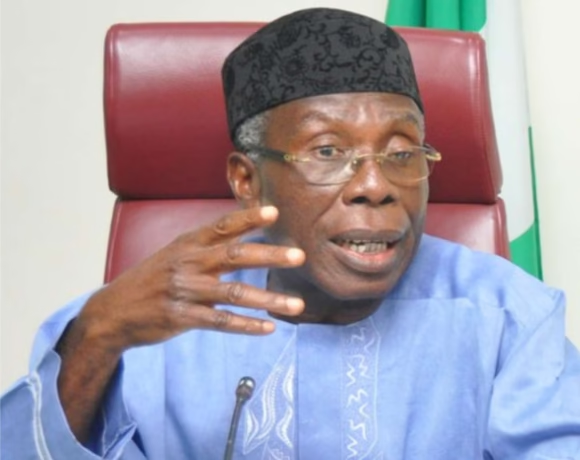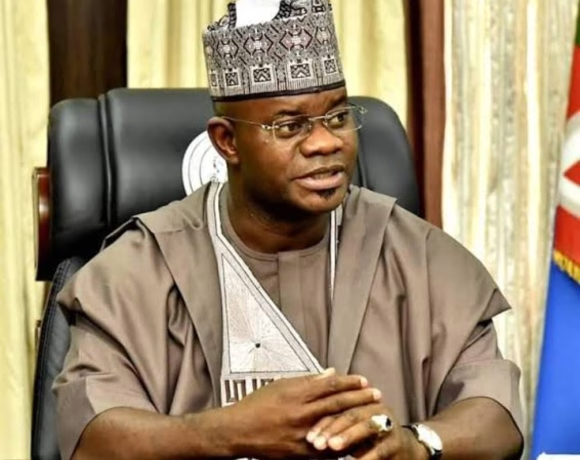Nike Lake: A hideout resort in Enugu
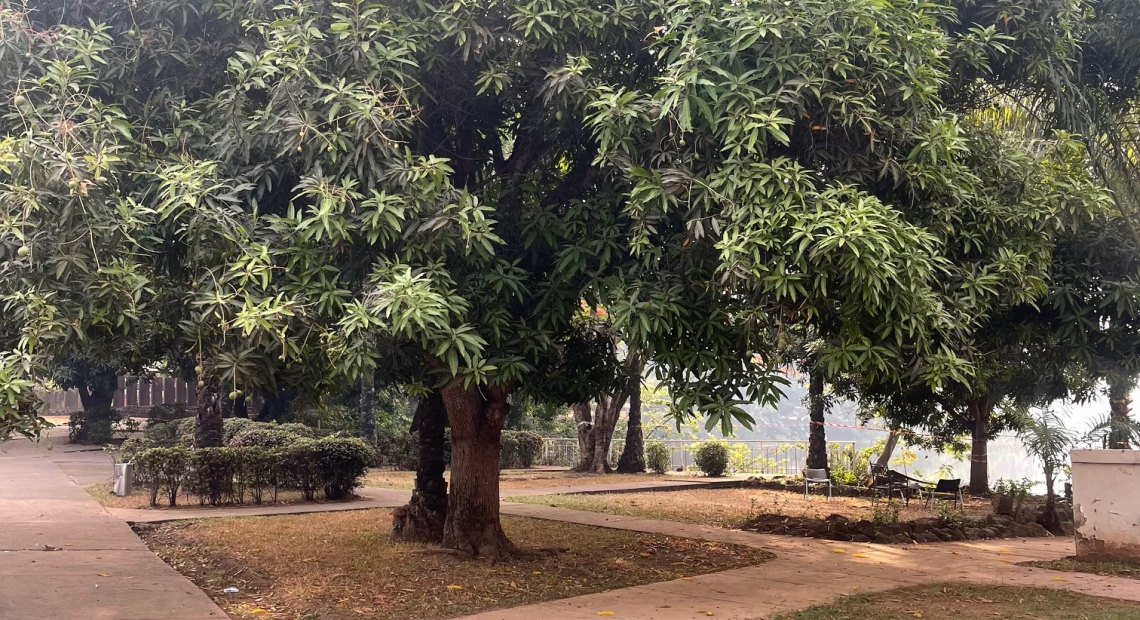
By Theophilus Abbah
It is February in the coal city of Enugu. The month is renowned for the furious humidity that creates uncanny perspiration and the discomfort that makes one detest wearing thick fabrics. Nike Lake Resort, however, provides an escape from the unfriendly weather. The wide space at the back of every hotel room exposes the body to mild and soothing wind, as much as the spectacle transports one to the innocence of rural settings. The wide lawn of the hotel, built in a W-shape, is the size of a football field.
The wide space unfolds like a living canvas, with trees towering as though they’ve gorged on the earth’s lifeblood and sipped generously from the whispers of the wind. Scattered across this expanse are ancient stones, once blushing with a fiery red but now cloaked in the somber shades of time, their surfaces weathered and dimmed by the relentless caress of rainstorms over decades.
Nike Lake, shielded by a forest of trees, remains secluded from the throngs on the road
Across the open field is a consortium of tall trees, tall teak trees, a family of timber used for erecting electricity poles in Africa. They are in unison with mango, palm, coconut, guava trees, well-trimmed assorted flowers, and diverse shrubs. The serenity of the space and the beautiful sight shield the soul from the riotous noises a mile away from the hotel.
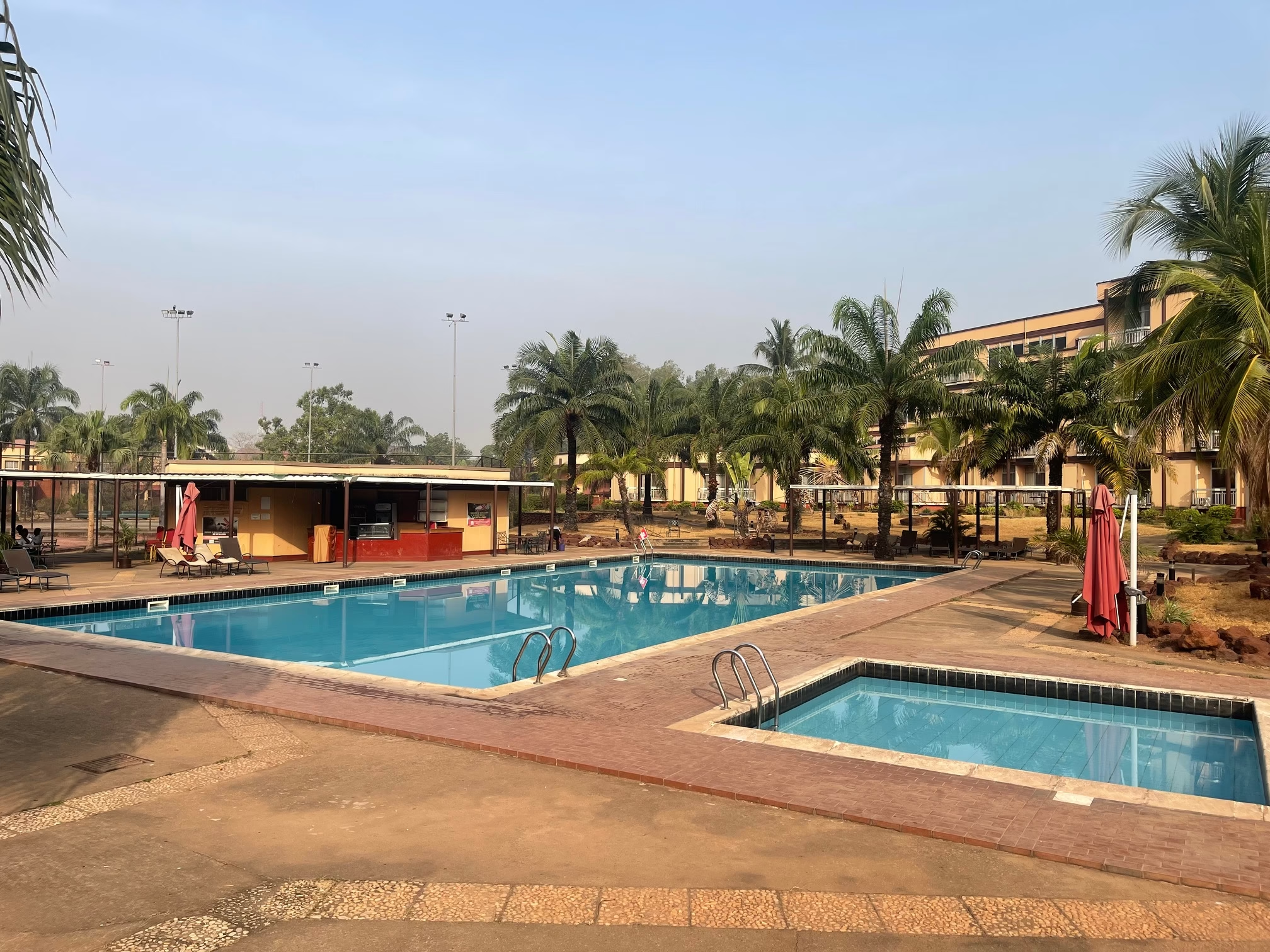
Nike Lake swimming pool
Located in Enugu East Local Government Area, which forms part of the capital city, the resort actively shares its boundary with the bustling road leading travelers to the university town of Nsukka, while Nike Lake, shielded by a forest of trees, remains secluded from the throngs on the road, the cacophony from nearby shops, and the palpable urgency of travelers scrambling to board buses and tricycles heading either to the city center or Nsukka.
The resort, true to its name, is a haven of rest, much like the cleft of the rock that sheltered Elijah from the storm. It serves as a retreat from the bustling crowds of Enugu, offering solace akin to the still waters and green pastures of Psalm 23. Unsurprisingly, it has become the favored gathering place for Nigerians hosting conferences and workshops in the South-East.
…A massive hotel beside a lake would be appealing to people who want to escape from the stress in our cities
“This resort was established during the era of Governor Jim Nwobodo in the 1980s,” Tony Adibe, a journalist of about three decades, told The Insight. “I understand he had travelled to one European country, stayed in a similar hotel, and decided to replicate it in Enugu State. He felt that a massive hotel beside a lake would appeal to people who want to escape from the stress in our cities.”
Chief Jim Nwobodo was a Second Republic Executive Governor of the old Anambra State from 1979 to 1983. Today, the state has given birth to two more states, making a total of three – Enugu, Anambra and Ebonyi States. At the time of its construction, the hotel was massive, in a society where high-rise structures in the whole of Anambra State was a strange phenomenon. The three-story structure of 210 rooms was imposing, beautiful, and sophisticated, and it was the delight of politicians to lodge, meditate and strategize.
Ironically, some of the staff of the hotel no longer recollect who Jim Nwobodo was; some claimed they had never heard that name.
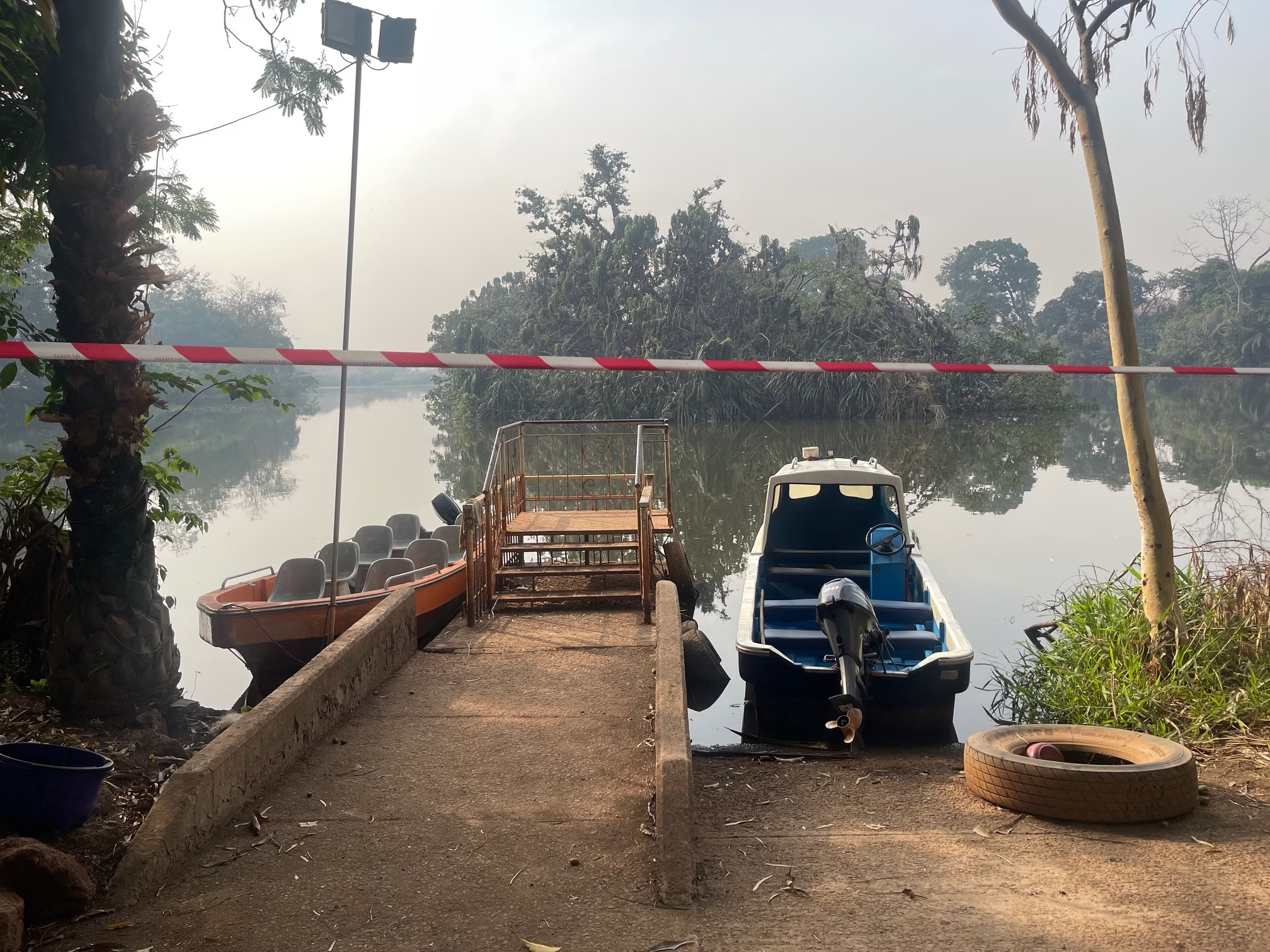
A view of the natural lake at the Nike Lake Resort
At the reception, the front desk clerks and porter welcome visitors with juice drinks prepared from oranges, guava, watermelon or mangoes. They soothe the nerves and come with a welcome feeling. Smiling and vigorously at work, the staff betrayed the pressure that accompanied their tough task of attending to multiple lodgers. Every visitor wanted instant attention, even when they observed that the front desk staff were under tremendous pressure. But they resisted the temptation to burst out in anger.
The restaurant provides a better view of the landscape
Perhaps the rooms are not the best windows to the beauty of Nike Lake Resort. The restaurant provides a better view of the landscape. Sitting on the wooden chair and iron table covered with white and blue clothes, the colour of Nike Lake, one sees through the windows that run from the left wing to the right wing of the restaurant.
Twenty metres from the terrace outside the restaurant, the swimming pool, inviting blue, spreads before the visitor. It is surrounded by tall palm and coconut trees separated by a walkway. For those who are not friends with the humidity that is generated from the sun, a walkway with green-colour roofing sheets provides protection.
At the back of the swimming pool is a bar where those who dry themselves after swimming in the pool sit or rest on the foldable swimming pool lounge chairs. They are made of plastics, some of wood, and some of iron. The blue swimming pool water is the delight of many young lovers and children who are excited to learn how to navigate the waters. They tweak their limbs in water like aquatic fauna. They dream of swimming in the manner they watch on television.
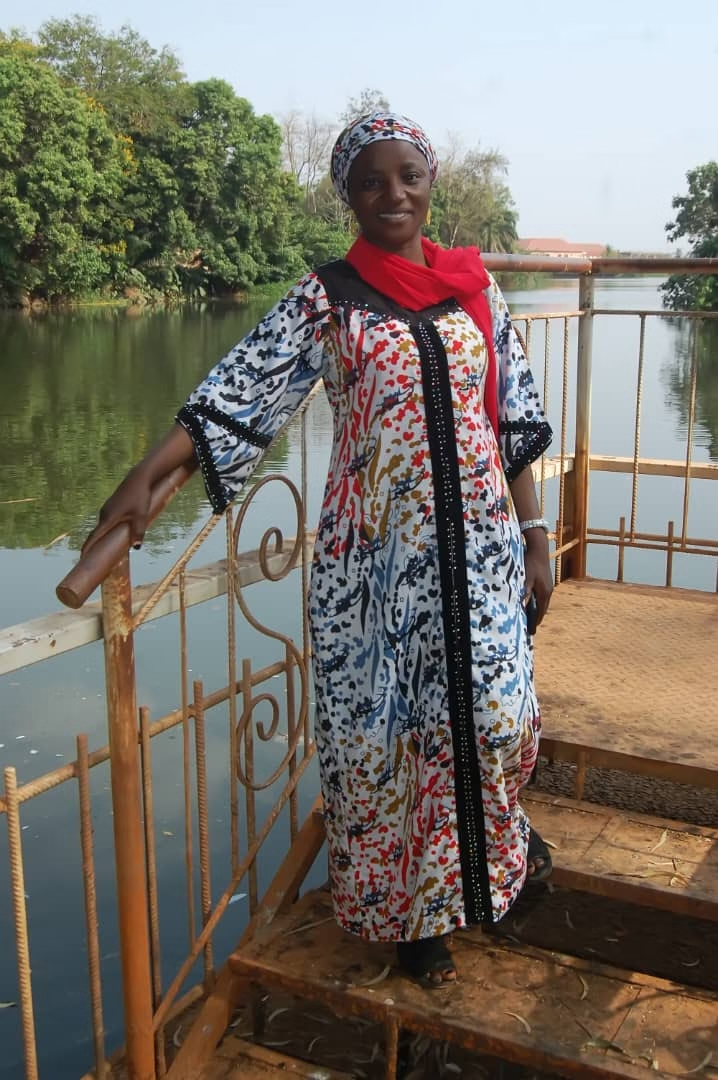
A visitor savouring fresh air at the bank of the lake at Nike Lake Resort
Of all the delicacies in the restaurant, okpa stands out. The delicacy is curated from locally grown bambara nut and spiced up with pepper, salt, onion, and ozuza seed (an Ibo spice). Though its appeal comes from the aroma that wriggles into the nose, the hot pepper that gives okpa its distinctive taste could leave one with wet nostrils. To derive maximum pleasure from the delicacy, it must be eaten with tears when it is still uncomfortably hot. In the restaurant, okpa is preserved with leathers to ensure that every time it is eaten, the delicacy is wet and hot.
The lake is about three hundred meters from the hotel
From the restaurant, diners could have a faint glance of the beauty of Nike Lake, from where the hotel derives its name. The lake is about three hundred meters from the hotel, enclosed in tall trees. At the time of this visit, the place was restricted, cordoned off with caution tape at the embarkment around the body of waters. It was feared that some wild snakes or crocodiles had infested the water and could erupt from the still waters to attack unsuspecting persons.
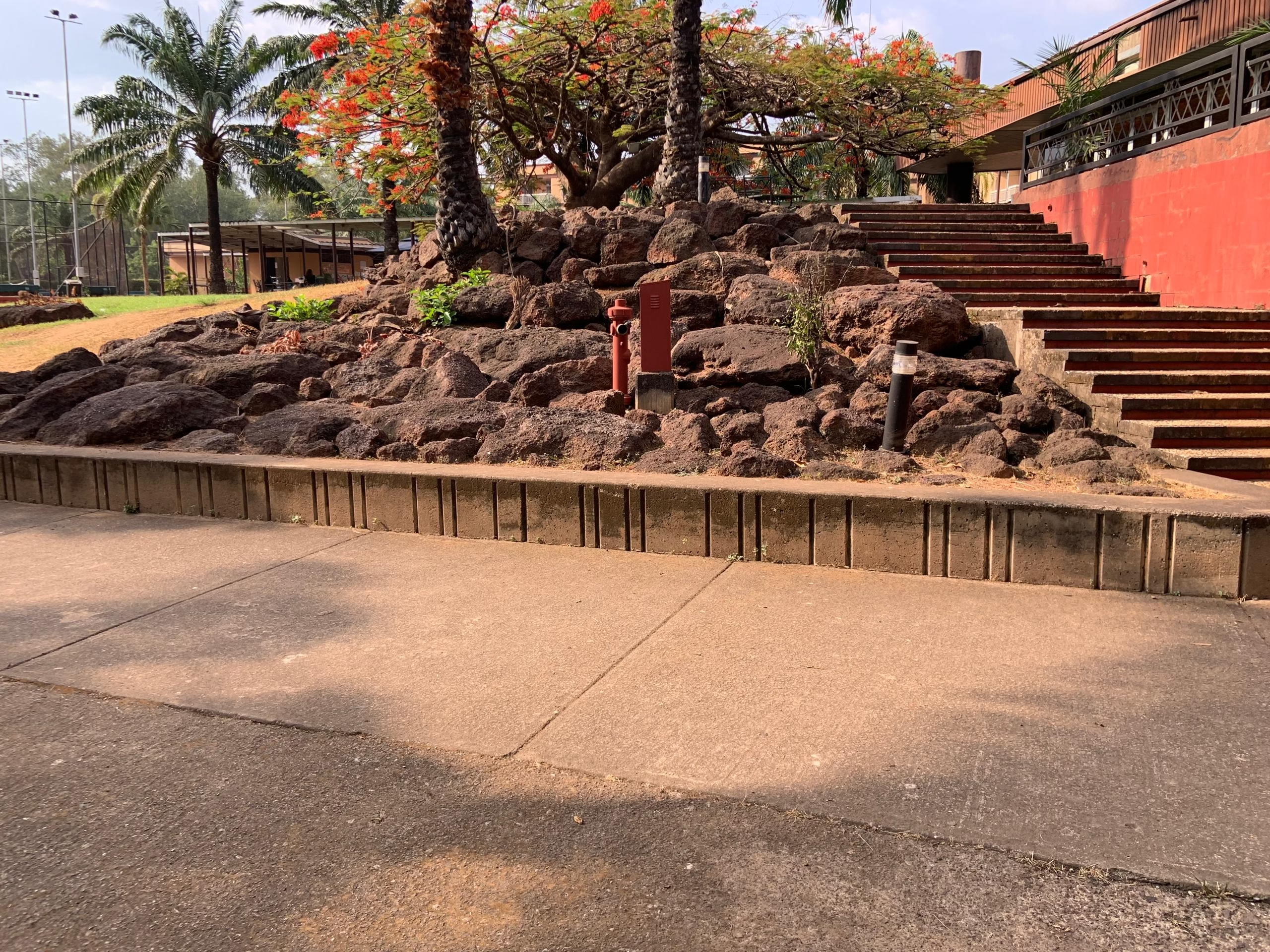
A front view of the resort
Despite the warning tape around the lake, many visitors to Nike Lake Hotel consider the natural lake one of the major attractions in that part of Enugu. In those days when unfriendly beasts had not infested the still waters, visitors to the hotel paid a token for a boat ride across the lake.
Tradition has it that the lake was located in a community whose original name was ‘ndike’, meaning the settlement of strong people. Unable to cope with the tongue twister, colonial administrators called the community ‘nike.’
The hotel saw good days when it provided a roof over the heads of politicians and prominent Nigerians who visited Enugu for high-powered events. It has also passed through tortuous bad times, when the state government abandoned it to rodents, wild grasses, and decadence. It is now in a season of reinvention. The state government has given it on concession to a renowned hospitality and tourism organization.
The hotel saw good days when it provided a roof over the heads of politicians and prominent Nigerians
Zainab Usman, who lodged in the hotel for four days, spoke to The Insight about what appealed to her. “The hotel’s ambiance soothes the body. I love the palm trees, the fresh air that freely sweeps through the space. The golf course is beautiful, though it needs better maintenance. The staff are responsive. They attend to our complaints without delay.”
This hotel, unveiled in 1988 under the watchful gaze of Lt. General Sani Abacha and during Col. Robert Nnaemeka Akonobi era as the military governor of the old Anambra State, stands like a sentinel of history in Enugu. Truly, it remains one of the crown jewels of Enugu, the heartbeat of Eastern Nigeria’s storied past.
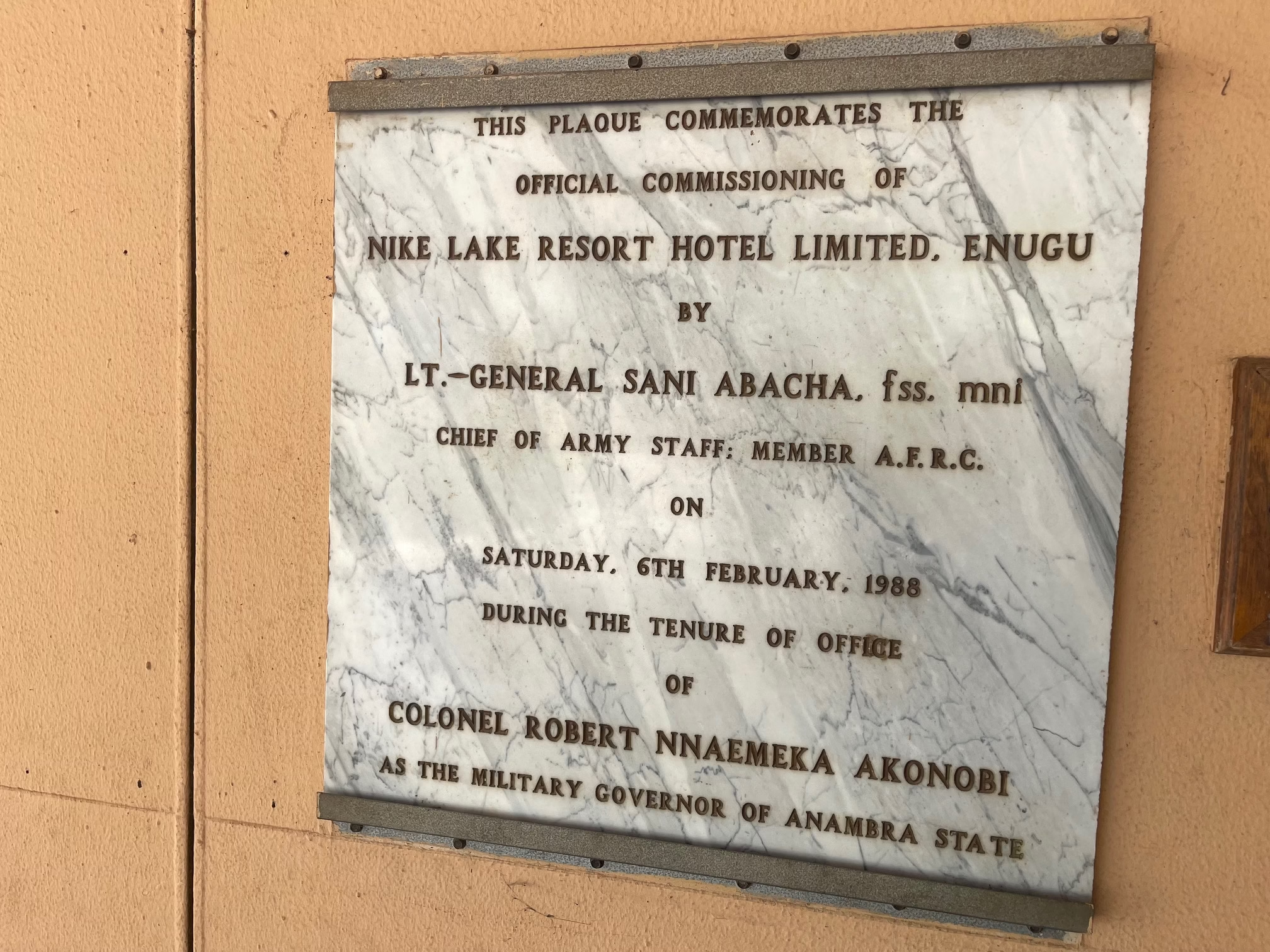
The plaque about the official commissioning of the resort
Sign up for The Insight Newsletter
Get in-depth, research and data-based interpretative reports from around Nigeria.

